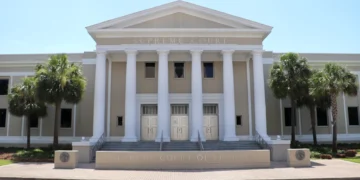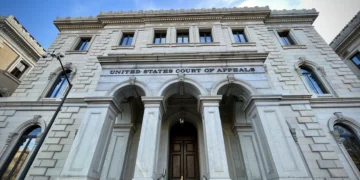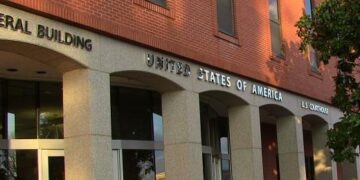Jan 8, 2025 Story by: Editor
Louisiana is at the heart a pivotal legal battle that could significantly impact the state’s political and cultural landscape.
The U.S. Supreme Court is set to hear arguments on the controversial redistricting of congressional maps.
Redistricting Case Reaches the Supreme Court
The consolidated cases of Robinson v. Callais and Louisiana v. Callais will determine the fate of the congressional maps drawn by the Louisiana Legislature earlier this year. A three-judge panel from the U.S. District Court for the Western District of Louisiana previously ruled that the maps amounted to racial gerrymandering, violating Section 2 of the Voting Rights Act. The court directed lawmakers to create a second Black-majority district.
The dispute stems from the 2020 Census, which revealed that Black residents make up about one-third of Louisiana’s population. Yet historically, the state has had only one Black-majority district among its six congressional seats.
“For far too long, Louisianians have had to contend with a map that was not representative of the people who live and vote there,” said Marina Jenkins, executive director of the National Redistricting Foundation (NRF). “As held recently by multiple courts, the Voting Rights Act requires Louisiana to have a congressional map with two Black opportunity districts.”
NRF-backed plaintiffs argued successfully that the original maps diluted Black voting power. However, the revised maps are now being challenged by a different group of plaintiffs, self-identified as “non-African American voters,” who claim they constitute racial gerrymandering.
Eric Holder, former U.S. Attorney General and chair of the NRF, defended the maps, stating, “This should not be a difficult case for the Supreme Court to resolve. This is, after all, a Court that just last year affirmed the validity of essentially the same enforcement section of the Voting Rights Act.” He further emphasized, “Federal law, the Supreme Court’s own precedent, and basic fairness dictate that Black Louisianans vote on truly representative and fair maps.”
Louisiana Attorney General Liz Murrill countered with a defense of Senate Bill 8, the Legislature’s updated map, calling it a “good-faith attempt” to meet legal requirements. “Our brief urges the Supreme Court to uphold SB8 and provide clarity to states that, like Louisiana, are forced into endless litigation every time a new census requires redistricting,” Murrill said. The case will test how the Supreme Court applies the Voting Rights Act in light of its decision in Allen v. Milligan. Source: The Center Square

















